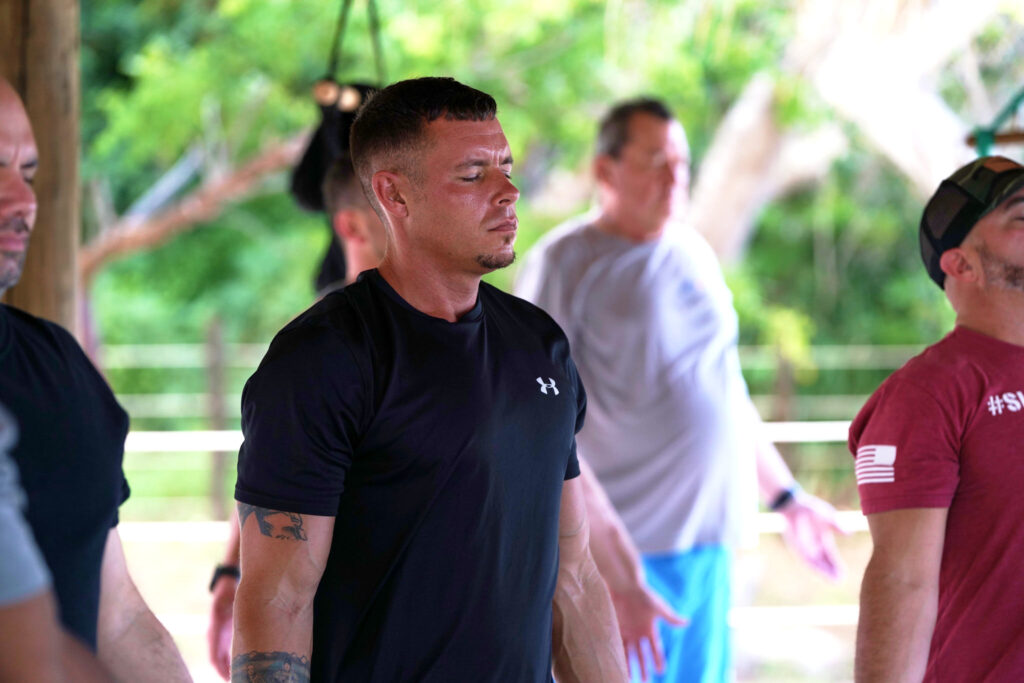If you’re looking for a mental health retreat for a young adult, there are a few things to keep in mind to ensure a safe, rewarding, and positive experience. Generally, a mental health retreat geared towards young adults will provide an opportunity to break away from everyday stressors so that participants can focus on their mental health and healing.
Mental health retreats for young adults should offer them a chance to improve their mental wellness with a range of treatments such as group therapy sessions, workshops, and mindfulness exercises. With so many mental wellness retreats available, understanding the components that make up a transformative and safe retreat experience can help you choose one that will have a strongly positive impact on the young person in your life.

What Defines a Mental Health Retreat for a Young Adult?
“Mental health retreat” is a broad term used to describe a wellness retreat that could address common mental health issues such as depression and anxiety. A mental health retreat can also help young adults develop life skills and aid in personal growth. Some mental health retreats can be customized to the needs and goals of each attendee.
A young adult is loosely defined as someone in the transitional period between the ages of 18 and 26. This is a time when many young adults are expected to assume more independence and responsibility for their everyday lives. Achieving independence and becoming productive members of society may feel overwhelming for some.
A mental health retreat can be a stepping stone to help young adults grow into autonomous and confident individuals. While the program approach and philosophy will vary according to each mental health retreat’s curriculum, a wellness retreat that supports young adults can be a catalyst for positive transformation.
Important note: A true mental health emergency in a young adult (with or without a known mental illness) may require urgent, formal care from a healthcare professional. Seek medical assistance immediately if the young person in your life becomes suicidal or violent. Retreat experiences are best for young adults who are relatively stable but need help finding a sense of purpose and direction, changing negative thought patterns, or learning healthier habits.
What Aspects of Mental Health Do Retreats Focus on?
Depending on a retreat’s goals and philosophy, a mental wellness retreat can focus on various aspects of mental health like stress management, self-care, and emotional regulation. A mental health retreat can also help participants develop a greater understanding and connection with their thoughts and emotions. This can set them up to gain stronger life skills and lead to transformative personal growth.
Additionally, many retreats provide an opportunity for young adults to step away from daily life and recenter themselves. Some of the most popular mental health retreats for young adults—and anyone seeking to tend to their mental health—include:
- Wilderness or Nature Retreats: Nature retreats provide a powerful setting in which to connect to the great outdoors. While many nature retreats provide a tranquil and peaceful atmosphere, wilderness retreats for young adults may be especially rigorous and aim to help participants become more capable and confident through outdoor challenges. At The Aerial, BVI, we offer nature hikes along with a wide range of watersports activities.
- Yoga Retreats: A yoga retreat offers a space to withdraw from everyday life and focus on the healing powers of yoga. Yoga retreats will often focus on connecting the mind, body, and spirit and help participants develop a greater sense of inner peace. We offer yoga as part of all of our retreat experiences.
- Fitness Retreats: A fitness retreat is a program that focuses on physical health. Often, fitness retreats will include activities such as outdoor exercises, healthy eating, and wellness workshops. A fitness retreat will also serve healthy meals and help the attendees develop healthier habits that they can continue to implement at home. Our Elevate Strength Summit is a great example of a fitness retreat.
- Wellness Stays: Wellness retreats provide a chance to reset and engage in a dynamic range of therapeutic activities that can help people reach their health goals. These goals can be mental, physical, or a blend of both. Our Deep Wellness Stays are ideal for people looking for this kind of retreat.
Key Things to Look for When Choosing a Mental Health Retreat
Mental health retreats allow individuals to disconnect from the to-do list of life and focus solely on themselves. According to research, retreat experiences can have a positive impact on cognitive functioning.
Young adults can benefit greatly from attending a mental health retreat in a facility that provides a safe and supportive environment. With evidence-based integration of healing modalities such as hippotherapy, yoga, and meditation, mental health retreats can help young adults who are transitioning into independence.
These are a few essential elements of a transformative mental wellness retreat for young adults:
Individualized Programs
A dynamic wellness retreat should ideally tailor the experience to each attendee’s specific needs. This can mean working with on-site mentors and therapists and participating in a curated program of wellness therapies. Some of these therapies may include horseback riding and equine therapy, guided hikes, or yoga and meditation. The retreat should also tailor the menu to each person’s dietary restrictions and serve up healthy foods that nourish both the body and mind.
A Range of Therapeutic Activities
The best mental health retreats offer a range of therapeutic services such as individual counseling, mindfulness sessions, nature activities, and an environment that supports a positive mindset. For example, The Aerial, BVI hosts mental wellness retreats on a gorgeous private island in the British Virgin Islands. These exceptional retreats give individuals the chance to immerse themselves in a sanctuary of mindfulness, growth, and serenity while participating in a range of therapeutic and wellness activities.
Therapeutic activities may include a selection of holistic spa services, fitness activities, and recreational activities that can help young adults restore their vitality and energy levels. Additionally, some retreats offer ceremonies such as drumming, prayer, cocoa ceremonies, and intention-setting practices to help young adults connect to a higher power and their inner selves.

Location and Environment
Choosing a location or environment that fosters healing is an important factor to consider when choosing a mental health retreat. For instance, some individuals may prefer a calm and natural setting—close to a beach or in the woods—while others may find an urban location more appealing.
Before booking a mental health retreat, it’s good to check how many participants will be attending. While some young adults prefer big groups, others may find a smaller, more intimate setting to be less overwhelming and more conducive to healing. Ultimately, it is important to choose an environment that aligns with the young person’s individual preferences.

Qualified Staff
Guests should feel safe, supported, and comfortable when attending a mental health retreat. It’s always good to check who the mentors and teachers will be. Staff members should be equipped with the right certifications and training to provide guests with a healing experience. A trained therapist should also be available to provide personalized guidance and support.
For example, a young adult may choose to participate in a wellness retreat to develop better life coping skills. As a result, they may embark on a wilderness retreat where they learn positive coping skills out in nature. For best results, the staff member who will lead this activity should have a degree in wilderness or outdoor therapy and a good grasp of experiential learning.
Family Support for a Young Adult on a Mental Health Retreat
If a young adult in your life has chosen to attend a mental health retreat or a family member has encouraged them to go, there are several ways the family can provide support:
- Offer a listening ear while respecting the young adult’s privacy and space.
- Help with practical tasks, such as dropping them off at the airport, picking up their medications, or providing financial assistance.
During the retreat, you can send inspirational text messages or check in from time to time (if the retreat guidelines allow outside communication). Some retreats provide a chance for families to get involved with family therapy sessions. This type of therapy aims to address specific family conflicts and promote healing within the family unit.
At the end of the day, a family should simply be there for a loved one who is on a mental health retreat. Offer compassionate, non-judgmental support. Receptive, neutral support can help a young adult feel motivated and safe in their healing journey.
Mental Health Retreat Aftercare and Planning
After a mental health retreat, it is important to have a plan for continuing care. This can involve drafting up a comprehensive aftercare plan that helps both family members and the retreat participant stay accountable.
An aftercare plan may involve follow-up therapy sessions, specialty spa services, or other types of alternative medicine like acupuncture and sound bowl therapy. Maintaining open and ongoing communication with counselors, mentors, and family members can help the young person continue to grow.
Mental Health Breaks Can Be Transformative
A mental health break can have a major effect on young adults, potentially leading to big life transformations. Mental health retreats offer a one-of-a-kind opportunity to disconnect from everyday life and dive deep into healing.
In addition, mental health retreats can be a place of refuge for young adults who are feeling overwhelmed by the pressures of society. Mental health retreats can provide an opportunity to reset, refocus, and find the strength and clarity to live a more purposeful and empowered life.